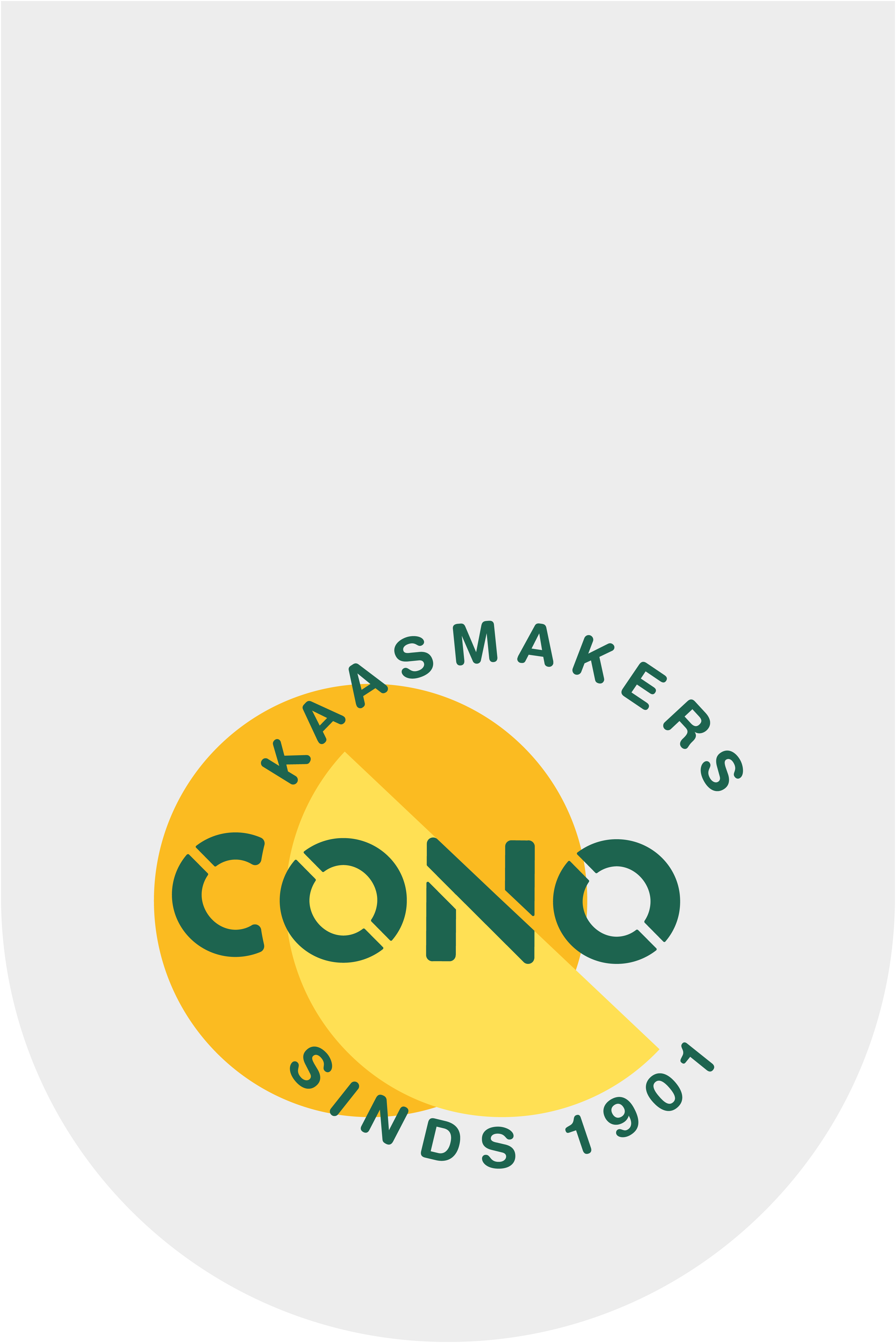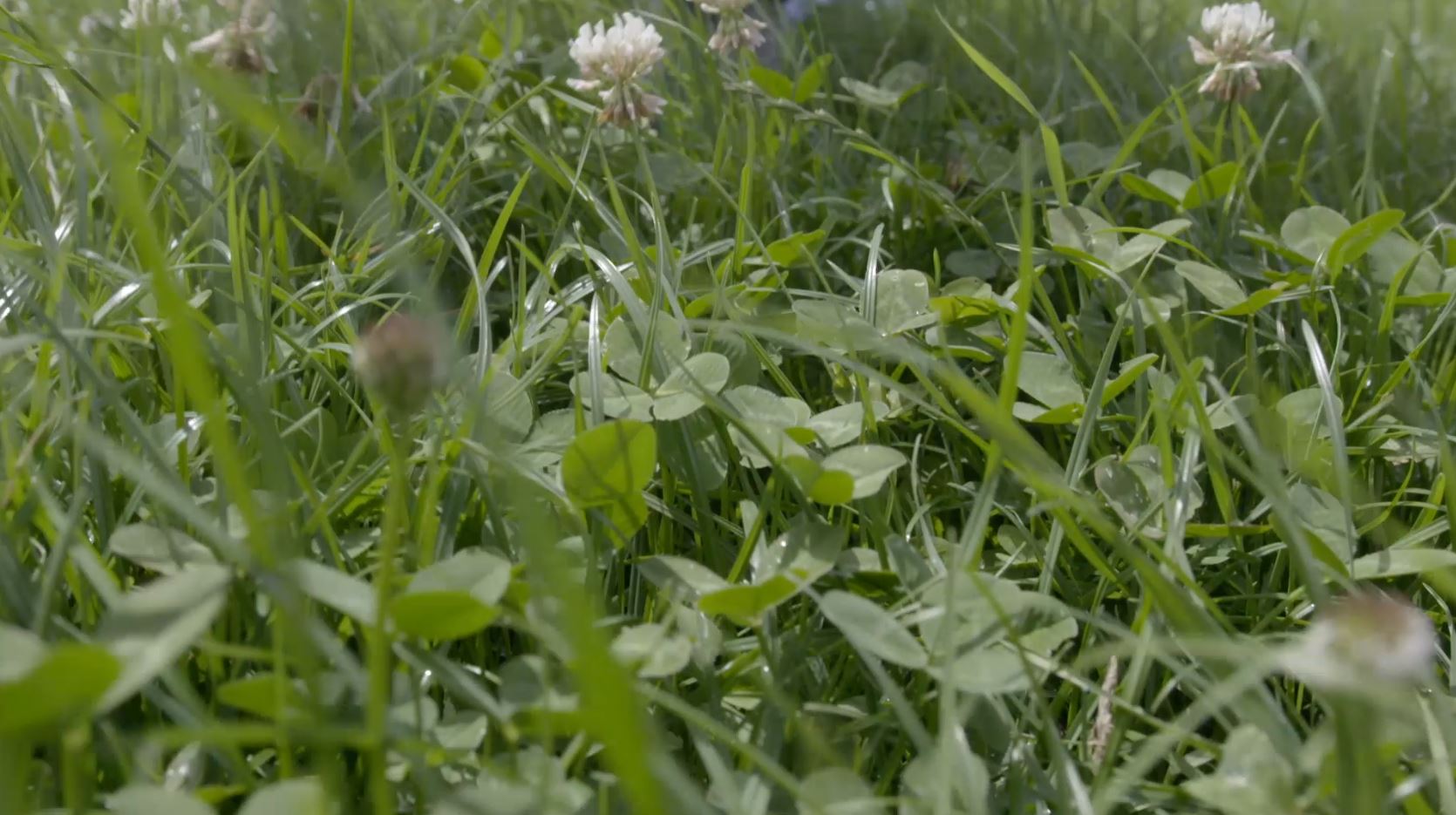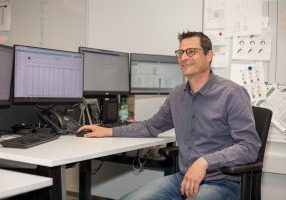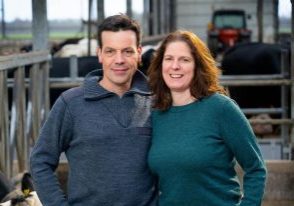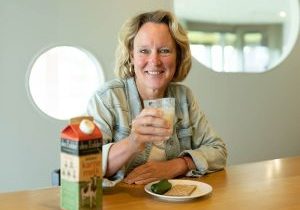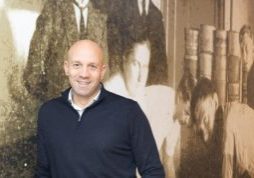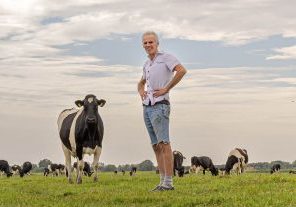CONO Kaasmakers is een kleine boerencoöperatie met een grote ambitie. Samen gaan we voor positief voor toekomstige generaties, waarbij we er alles aan doen om onze wereld op een positieve manier door te geven aan de volgende generatie.
We werken op een transparante manier om de lekkerste kaas te maken. Hierbij doen we geen enkele concessie aan de kwaliteit en smaak die je van onze kaas gewend bent.
Samen, positief voor toekomstige generaties.
CONO wil betrokken zijn en dichtbij de maatschappij staan. We realiseren ons dat ons handelen een impact heeft op het klimaat. Daarom verbinden we ons als coöperatie aan de Duurzame Ontwikkelingsdoelstellingen die de Verenigde Naties in 2015 hebben vastgesteld. Met het doel om van de wereld een betere plek te maken.
Hoe doen we dat?
Dit doen we in onze hele kaasketen van koeienbek tot winkelrek. We maken eerst het eigen aandeel CO2 zo klein mogelijk. Als CO2-reductie (nog) niet mogelijk is, investeren we in maatregelen die CO2 vastleggen. We werken op een transparante manier om de lekkerste kaas te maken. Hierbij doen we geen enkele concessie aan de kwaliteit en smaak die je van onze kaas gewend bent. Allemaal voor een eerlijke melkprijs.
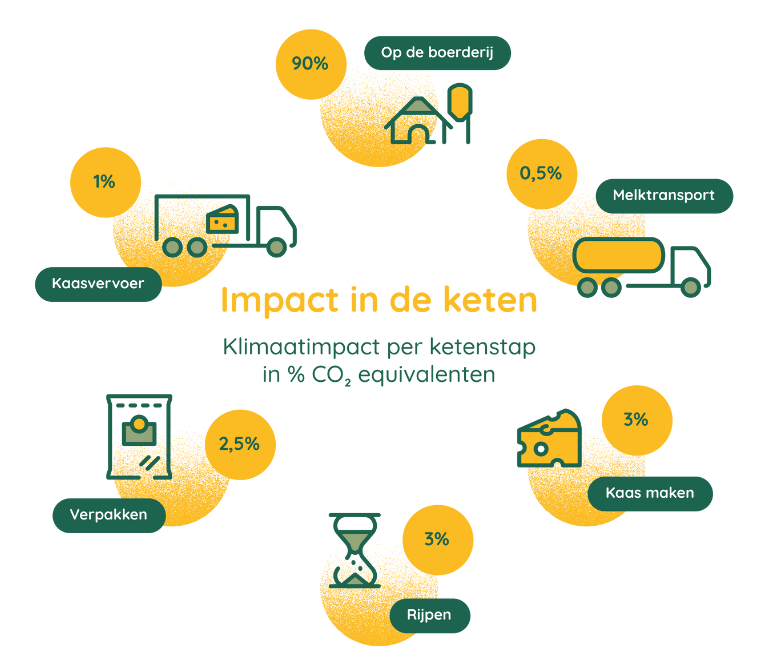
Ons doel in een getal: 30% reductie
We maken de keten in twee stappen positief Eerst proberen we het eigen aandeel CO2 zo klein mogelijk te maken. Voor het deel dat we (nog) niet kunnen reduceren investeren in maatregelen die CO2 vastleggen. De uitstoot van CO2 wordt gemeten in zogeheten ‘kilo CO2-equivalent per kilo CONO-kaas’. Hiervoor is een objectief rekenmodel gebruikt, namelijk een life cycle analyse van Blonk Sustainability. Dat komt hier op neer: hoe lager, hoe beter. We hebben berekend dat we in 2030 ongeveer 30% kunnen reduceren. Dit doen we op vijf gebieden in de keten ‘van koeienbek tot winkelrek’: Op de boerderij, melktransport, kaasmakerij, kaasrijping, verpakkingen en kaastransport. De bij- en zijstromen zoals room en weipoeder rekenen we niet mee.
Fase twee: nog minder dan nul
Op het boerenerf onderzoeken we de mogelijkheden van onder andere kringlooplandbouw en carbon farming, dat gaat over CO2-vastleggen onder het grasland en bijvoorbeeld bomen. En zodra er voor onze kaasmakerij een bewezen innovatie is die bij ons past, denk aan biogas, waterstof, geothermie, en warmtenetten, haken we aan. Tot slot kopen we CO2-certificaten van klimaatprojecten. Projecten van ver als dat nodig is, gericht op het aanplanten van nieuwe bomen en het behoud van regenwoud bijvoorbeeld. Maar als het kan kopen we ook CO2-certificaten van onze eigen veehouders.
Duurzame verhalen
Voor CONO Kaasmakers is het klimaatvraagstuk een ketenvraagstuk met de koe als spil: “van koeienbek tot winkelrek.” Dat begint bij het voer voor de koe, gevolgd door maatregelen op de boerderij en in de kaasmakerij, in de distributie en bij de verpakkingen in het winkelschap. We willen al ons vakmanschap inzetten en nieuwe kennis ontwikkelen om onze footprint te verkleinen en CO₂ vast te leggen. Daarbij stellen we blije koeien, blije boeren & blije aarde centraal, dus de koeien blijven buiten grazen en samen met onze veehouders geven we verdere invulling aan onze ambitie. Lees hier de duurzame verhalen.
